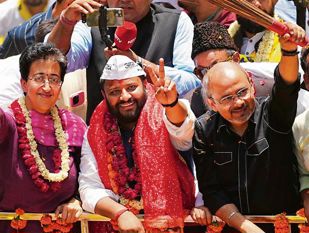
Thinkstock
Suresh Dharur in Hyderabad
The year 2016 brought with it a bitter reality check for the start-up industry in India. The frenzied investment activity that had marked 2015 slowed down considerably. The funding crunch began to bite. It has affected those that have no clear business model or differentiation from rival ventures.
“We have a plethora of challenges facing the industry. But, demonetization is certainly not one of them. In fact, the push for digital economy has had a positive impact on the start-ups that are operating in the e-payment space,” said a Hyderabad-based entrepreneur engaged in financial technology services sector.
In fact, within a week of demonetisation announcement, PayTM had garnered 700% hike in traffic, 300% surge in app downloads and about 1000% enhancement in saved money in its wallet facility.
Positive impact
“More and more merchants are now ready to embrace digital payments,” says Vinay Kalantri, managing director, The Mobile Wallet. “We are confident that demonetization and cashless transactions will expand the country’s economy, boost the banking sector and curb the circulation of fake currency and black money,” said Sudhakar Ram, CEO and co-founder, Benow.
The fact that now money will become formal and white will give rise to a greater number of electronic transactions. Startups will find it easier to collect and pay money, be it those startups that run on an aggregation model or ones that run on a delivery model.
“Black money and cash money is something that couldn’t go into startups as investments. Now, with more money coming into the formal economy, people will start looking at more avenues of investment and this would greatly help startups who are seeking funding. Next year, we’ll see an increase in the number of businesses using cloud-based solutions for online sales,” said Francesco Cetraro, head of operations for .Cloud.
So many challenges
Start-ups lack a support system, early-stage mentorship, investor connects and viable exits. “One of the problems with Indian startups is that they are not solving problems of India. E-commerce was a big success in the US because it really was needed at that point. We have copy-pasted these ideas in India,” says Jay Krishnan, the CEO of T-hub, billed as India’s largest start-up incubator. It is a Public Private Partnership (PPP) between Telangana government and premier academic institutes such as IIIT-Hyderabad, Indian School of Business (ISB) and NALSAR.
Several startups struggled as investors tightened their purse strings, either because they were not convinced about a business model, or were looking to monetize their existing portfolio. Funding crunch became one of the most heard terms this year.
The total number of startups that got funding fell by over 27% compared to 2015 while the total disclosed value of funding deals dropped by almost 42%.
“It is uncannily difficult to start a business in India. Myriad laws and regulations means it takes about 30 days to comply compared to just 9 days in Organization for Economic Cooperation and Development (OECD) countries. The OECD is a group of 34-member countries that discuss and develop economic and social policy. OECD members are democratic countries that support free market economies.
The government’s role has so far been limited to giving out grants and loans, but without an effective, enabling environment, implementation is far off the target. In this regard, it will be interesting to see the contours of the recently announced Startup Fund in this year’s budget. For startups to thrive and succeed, the government has a lot to do and understand the importance of entrepreneurship in economic development.
“Capital and access to capital has been a perennial problem for startups. While, of late angel investors, venture capital and private equity have brought succor to some extent, a large number of startups still grapple to raise funds from institutional setup. Funding challenge is not merely limited to seed rounds,” says Ashish Mittal, founder and chief mentor at Turning Ideas.
Need for paradigm shift
Since India has a unique set of problems, the replication of Silicon Valley model of start-ups will not work. “At T-Hub, we have chosen six key sectors to incubate startups, and all of them were chosen based on the strengths of Hyderabad as a city. Health technology, agricultural technology, financial technology, transport and logistics, sustainability and social sector are the areas,” says Jay Krishnan of T-hub.
“Indian startups are more about euphoria and less about substance, and they just chase capital rather than being the next frontier in technology. Most of them have a sense of entitlement and think they should get funding just because they have an idea,” says Ravi Bhogu of Monitra Healthcare. The company builds health monitoring devices which can be used by the patient easily, while carrying on with daily life.



























